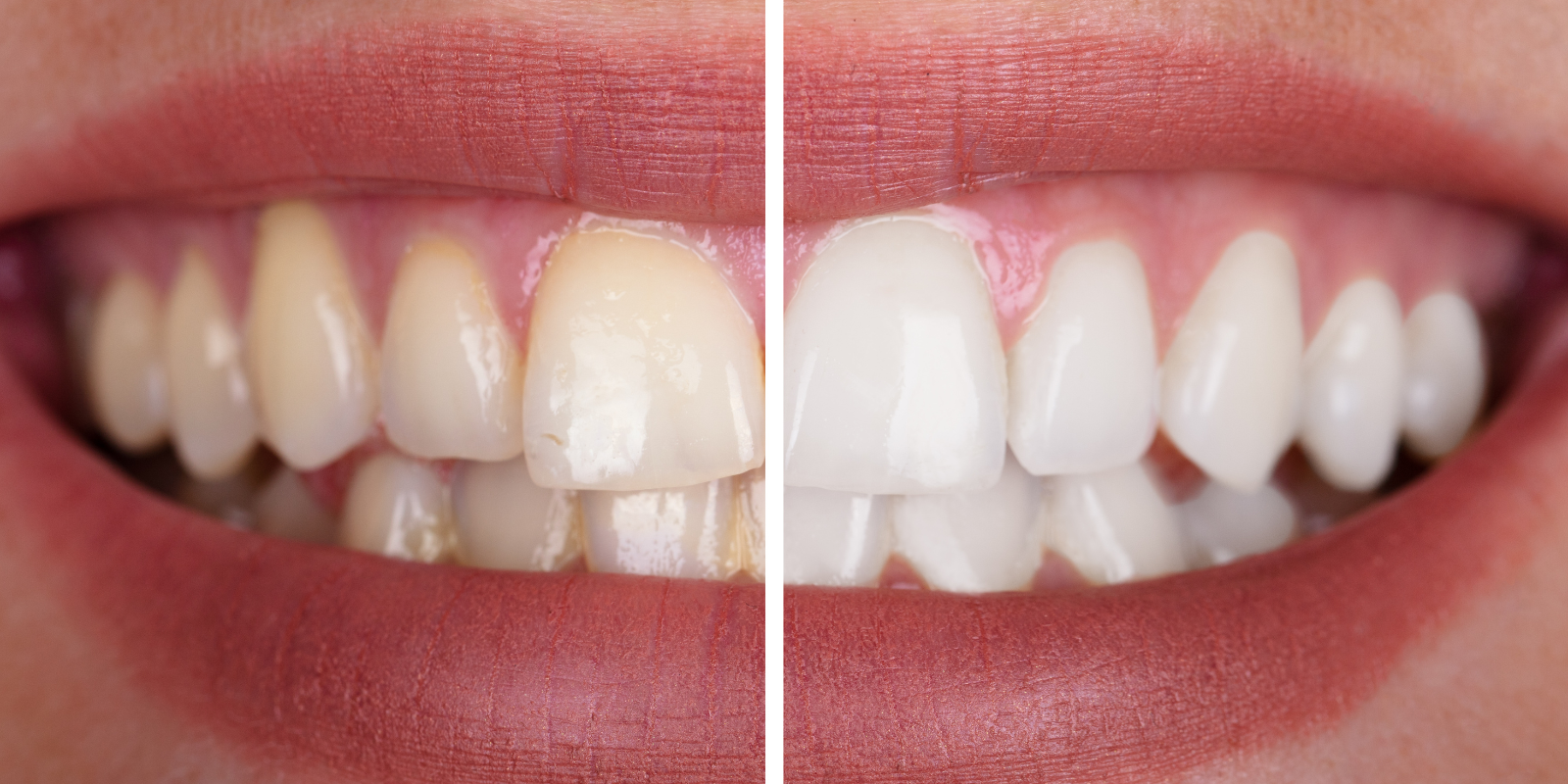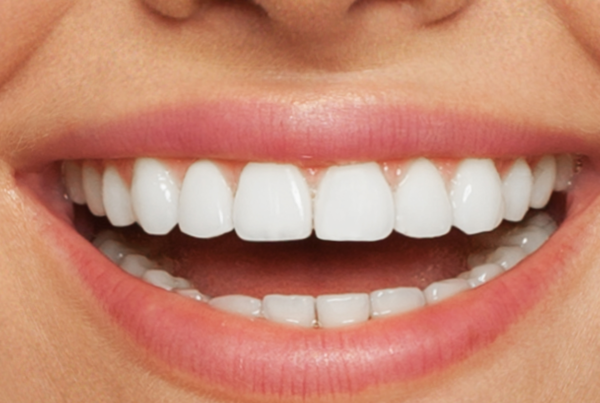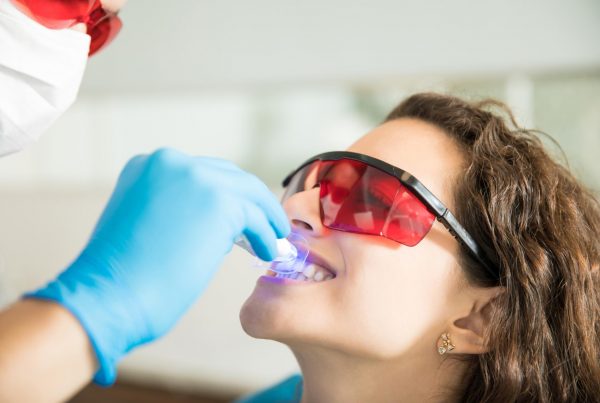- What causes tooth sensitivity after whitening and what triggers the pain?
- How long does tooth pain last after whitening?
- Reasons for pain after a whitening procedure
- How to relieve pain after whitening – ways to soothe sensitive teeth
- Home remedies for managing tooth sensitivity after whitening
- How to prevent tooth sensitivity after future whitening procedures?
- Post-whitening tooth pain and sensitivity – conclusion
A beautiful, white smile is a dream shared by many. It’s no surprise that teeth whitening has become extremely popular worldwide, both in dental clinics and at home. Professional whitening treatments and at-home products offer effective solutions for those looking to improve the appearance of their teeth. However, like any cosmetic procedure, teeth whitening can come with certain side effects—one of the most frequently reported is tooth sensitivity and pain that may occur right after the procedure. Why do teeth hurt after whitening? Is it normal to feel sensitivity? How can this discomfort be reduced? Are there safe whitening methods known in modern dentistry? In this article, we answer these questions and provide guidance on how to reduce the risk of future sensitivity.
What causes tooth sensitivity after whitening and what triggers the pain?
The whitening process uses chemical agents like hydrogen peroxide or carbamide peroxide, which penetrate the enamel and break down the pigments responsible for discoloration. Although these substances are highly effective, they can also cause increased sensitivity. This often occurs when cold air stimulates the dentinal tubules—tiny channels within the dentin that lead directly to the pulp, the most sensitive part of the tooth. Whitening agents may temporarily remove the protective layer on the tooth surface, leading to a heightened sensitivity, especially after consuming very hot or cold foods and drinks.
Sensitivity is most often caused by the following factors: weakened enamel and nerve endings due to brushing, poor condition of the tooth necks, gum irritation caused by poorly applied whitening products, use of overly concentrated whitening formulas, and uncontrolled use of baking soda or hydrogen peroxide. Not everyone experiences pain after whitening—for example, when using whitening trays. The causes typically include individual sensitivity, the condition of the enamel, and the specific whitening method used.
How long does tooth pain last after whitening?
Whitening weakens the enamel, and that’s something to be mindful of. The good news is that post-whitening pain is usually temporary. For most patients, discomfort subsides within a few hours or days. Standard sensitivity tends to last from 24 to 72 hours following the procedure.
Reasons for pain after a whitening procedure
The factors responsible for sensitivity after whitening include the intensity of the treatment (for example, laser whitening can cause more discomfort than whitening strips), individual tooth sensitivity, and the use of high-concentration whitening agents. If the pain lasts longer than a week or worsens despite using soothing products, it’s essential to consult a dentist. Prolonged pain may indicate enamel damage or other dental issues that require professional care.
READ MORE: Sonic toothbrush – how does it work?
How to relieve pain after whitening – ways to soothe sensitive teeth
If you suffer from sensitive teeth and are looking for effective ways to minimize post-whitening pain, the following solutions may help. These methods include both changes in daily hygiene and lifestyle.
Using desensitizing toothpaste is one of the most effective ways to relieve whitening-related pain. These toothpastes work by sealing the exposed dentinal tubules, significantly reducing the transmission of painful stimuli. Key ingredients include potassium nitrate, which calms nerve responses in the dentin; fluoride, which strengthens enamel and forms a protective barrier; and hydroxyapatite, which rebuilds enamel structure and reduces sensitivity. It is recommended to use the toothpaste twice daily and optionally apply a small amount directly to the teeth for a few minutes for an intensified soothing effect.
- Mouth rinses containing fluoride or xylitol help strengthen enamel and reduce discomfort. They can be used regularly, especially before bedtime, to protect the teeth throughout the night.
- Avoiding extreme temperatures is important after whitening. Consuming hot or cold drinks and foods can intensify sensitivity. Beverages should be taken at room temperature.
- Dietary changes are also beneficial. For a few days post-whitening, it’s advisable to limit acidic foods such as citrus fruits, fruit juices, and carbonated drinks. Choose foods with a neutral pH and soft texture and consider following a white diet.
- Pain relievers and anti-inflammatory medications like paracetamol or ibuprofen can help manage severe pain and reduce any inflammation in the mouth.
- Soothing gels and dental products designed for sensitive teeth form a protective barrier on the enamel and offer instant relief. These products are easy to use and can be applied at any time during the day.
- Avoid using whitening products during the recovery period. After whitening, it’s best to avoid any bleaching agents to allow the enamel to regenerate and to prevent potential gum issues.
Home remedies for managing tooth sensitivity after whitening
Here are some home remedies to ease pain and sensitivity after whitening.
- Saltwater rinses have anti-inflammatory and soothing properties. You can prepare a rinse by dissolving half a teaspoon of salt in a glass of warm water. Swishing this solution helps reduce pain and irritation.
- Cold compresses applied to the cheek near the painful area help reduce inflammation and ease discomfort.
- Coconut oil pulling not only soothes whitening-related pain but also has antibacterial properties that promote oral health.
- Chamomile infusion offers calming and anti-inflammatory effects. Rinsing your mouth with cooled chamomile tea is a natural way to ease sensitivity at home.
How to prevent tooth sensitivity after future whitening procedures?
To reduce the risk of sensitivity after future whitening treatments, follow these recommendations. Start using desensitizing toothpaste and mouth rinses a few days before the procedure. Avoid sugary foods. Try special trays with well-balanced whitening agent concentrations. Limit consumption of very cold or hot foods and drinks. Consult a dentist for personalized advice on protecting your enamel and dentin.
Post-whitening tooth pain and sensitivity – conclusion
Tooth sensitivity after whitening can be bothersome, but it is usually short-lived and manageable with the right approach. Consistently using strengthening toothpaste and mouth rinses, avoiding extreme temperatures, eliminating products that contain potassium nitrate, and maintaining a proper diet are essential strategies to reduce discomfort. If pain after whitening prevents you from continuing the treatment, consult a dentist as soon as possible to find the best solution. Remember, a beautiful smile begins with healthy teeth, so it’s important to care for them not just during whitening but every single day.






